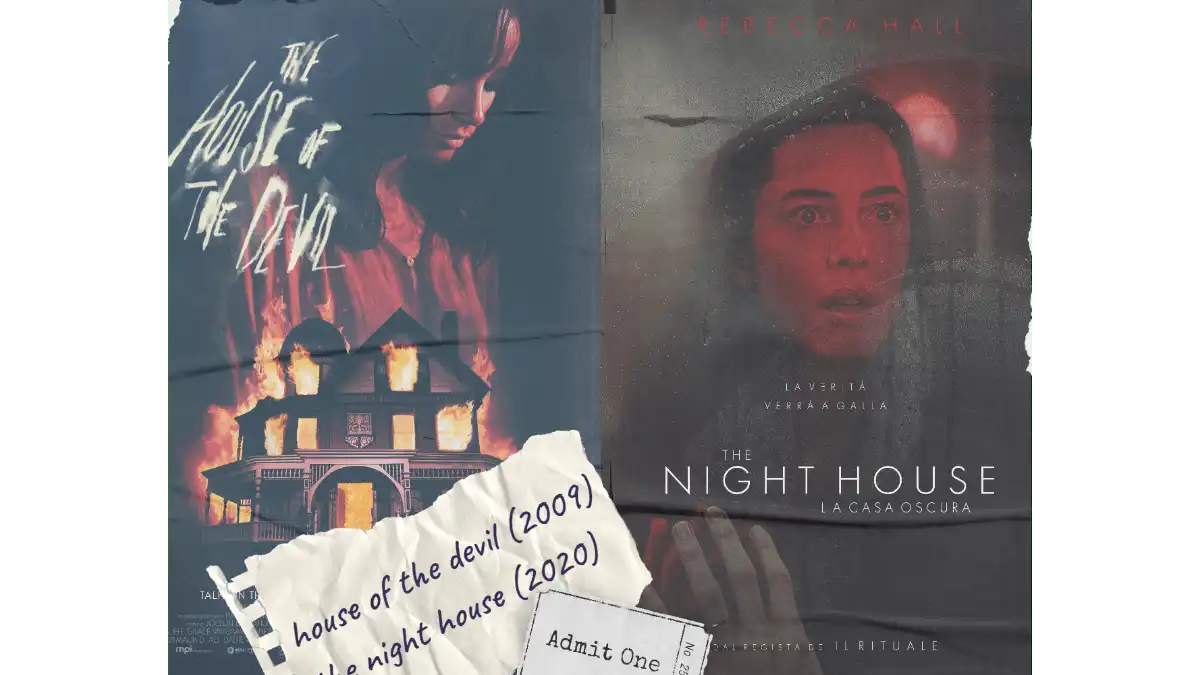Newsletter: Fright Club — Of Possessed Homes & Haunted Owners
This is #DoubleFeature, in which Harsh Pareek shares two recommendations for the price of none.
Jan 19, 2023

This column was originally published as part of our newsletter The Daily Show on November 28, 2022. Subscribe here. (We're awesome about not spamming your inbox!)
***
AS THE NIGHTS BEGIN TO LINGER and the cold with them, the long, quiet hours of the dark make for an ideal time to study and contemplate, to have a hot drink and listen to some jazz, perhaps occupy oneself with the arts and (witch)crafts. Or, as we like to do here, take in some horror films.
The winter months are always conducive to engaging with the uncanny, the unknown. It's almost as if a subtle, natural weight settles on the physical world outside, as well as on the mind. A weight that allows you to entertain a few extramundane possibilities that one might not on a perfect summer day. Like, is your house all that it seems to be? Or for that matter, the places that you spend countless hours of your life in with such casual ease — the offices, the hotels, the bookshops, the parks, the cafés, and the bars?
Everyday mundane spaces (more in a sense of the purpose they serve, and not necessarily their physical manifestations themselves), especially houses — from your modest suburban construct to the sprawling mansions on isolated hills — have always loomed large in the horror imagination, so much so that they have almost become a shorthand for the genre, for better or worse. But how does one go about breathing new life into age-old traditions? Well, you can certainly start by playing with the audience's established expectations, turning the tables on how they have come to understand and accept these tropes.
HAUNTED HOMECOMINGS
WHILE HE TOOK THE HORROR WORLD BY STORM earlier this year with X and Pearl Ti West had already made a mark on the scene in the late 2000s with The House of the Devil, starring Jocelin Donahue.
A highly stylised homage to horror films of the 1970s and ‘80s, the plot revolves around a college student who takes up a babysitting job that coincides with a full lunar eclipse at an isolated house. Without giving too much away, she soon realises (of course) that something sinister lurks just out of sight.
A rather straightforward premise, one would argue. But the notion of familiarity is the wheel on which the film turns. West makes almost the entirety of the runtime an anxious exercise of measuring one's expectations against what's actually happening on-screen. There's a nervous energy that drives the film along, an eerie atmosphere, that is as much a making of the filmmaker, as it is of the viewer.
For the same reasons, the house, which acts as a well-known stage on which the film unfolds, acquires not just a life of its own, but different heightened characteristics depending on your past brushes with similar settings. (How nervous does a stranger's house make you?) This is perhaps also the reason some find the film lacking in pace. It's difficult to resonate with the film if all you see is a big, old, empty house, or if phenomena like the satanic panic don’t evoke your interest.
What certainly helps though is the casting of Donahue in the lead role. The actor complements the film so perfectly, it is one of those instances where one feels a particular performer was just meant to play the role. She carries much of the film on her shoulders with precise ease, and seamlessly blends into the ‘80s American cinematic aesthetic and vision.
Besides, if you're a fan of listening to music on a Walkman and dancing alone in a creepy mansion during an eclipse, this will be your jam.
***
YET ANOTHER GREAT FEMALE-LED HORROR FILM centred on a house (among other things) is David Bruckner's The Night House starring the ever-wonderful Rebecca Hall.
Less atmospheric and more plot-driven, the 2020 film features Hall as a widow who begins to uncover dark secrets about the house her recently deceased architect husband had built, and the man himself.
Here, the said house is not just a setting (uncanny or otherwise) or a character in a conventional horror sense, but a very active participant in the unfolding of the mind-twisting tale. While the film examines broader themes such as trauma, relationships, closure and guilt, it also explores the role physical spaces play in our lives, on our psyche, what purpose they serve and how entangled they are often with the people who occupy or build them.
Whereas the house in West's film has an unsettling aura and blurred edges, as if the place doesn't quite exist on the same plane of reality, the lake house here has more physicality and sharpness to it. There is little room to hide. Confrontation — with demons of the past or the present — seems inevitable. If this comes across as vague, it's meant to be. One would highly recommend going into the film blind.
Add to all that a generous sprinkle of genuinely well-done horror that not only registers on an emotional level, but also scratches that itch of a well-done script. And lest you forgot over the course of the last couple of paragraphs — Rebecca Hall's excellent performance.
While there is no dearth of cinema revolving around otherworldly houses, and the horrors that reside within, The House of the Devil and The Night House not only showcase their enduring appeal, but perhaps more importantly, the sub-genre's potential to constantly evolve and tell stylistic as well as poignant stories.
Share